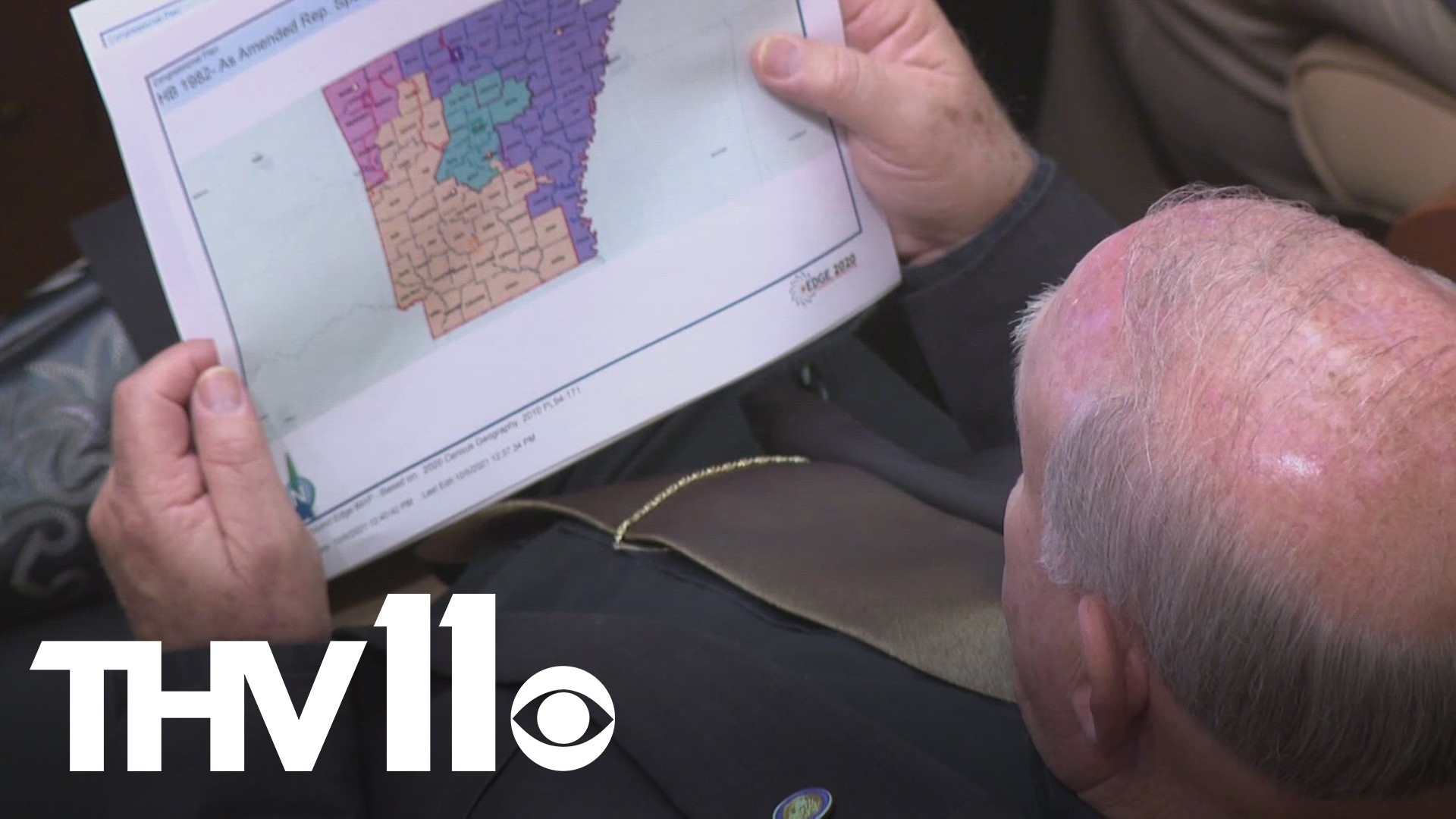LITTLE ROCK, Ark. — Members of the ACLU of Arkansas, the national ACLU, NAACP, and others met via Zoom on Monday to announce a new filing in their case against Arkansas's congressional redistricting map.
The filing would request that the full Eighth Circuit discuss their lawsuit, rather than just the three judge panel that initially did.
"It's not fair, it's not equitable, it violates Section 2 of the Voting Rights Act," said Kymara Seals, policy director for the Arkansas Public Policy Panel.
To understand the full context, we need to go back two years. In 2021, lawmakers approved a new congressional rerdistricting map.
"Challenging the newly enacted Arkansas state house map, because it unlawfully diminishes the voting strength of Black voters in the state," said Sophia Lin Lakin, Voting Rights Project Director for the ACLU.
That map was highly criticized, as some alleged it unfairly spilt up Black voters in Pulaski County. The most populous county in Arkansas was split into three different districts.
"It's a clear attack on voting rights and people of color, continuing to attack Black folks and making sure they do not have fair representation," Dominik Whitehead, President of Campaigns for the NAACP, said.
Because of that, a lawsuit was brought forward. A federal judge ruled that the lawsuit should be dismissed, and then the Eighth Circuit court agreed.
They said that only the United States Attorney General can bring up this type of lawsuit under Section 2 of the Voting Rights Act, not private individuals. Those at the press conference said they disagree, and that something like this has never happened before.
"We're talking about decades and decades of precedent, and all of a sudden, only the government can sue the government," Seals said. "You know, that doesn't even sound right when you say it out loud."
To understand that precedent, we asked law professor Joshua Silverstein who said this isn't something we've seen before, but there's more to it.
For the past 60 years, courts have operated on the assumption that the Voting Rights Act allowed both private individuals and the government to enforce Section 2.
Under Section 2 of the Voting Rights Act, political maps should include districts where "minority populations' preferred candidates can win elections," according to an Associated Press report. The U.S. Supreme Court earlier in 2023 ruled that Alabama's congressional map would have to be redrawn. That case was brought up by individuals and groups.
The tough part is the law is a little murky, Silverstein explained— it doesn't expressly say private citizens can do this, which is why the district judge ruled the way they did.
"Again, it's not as clear as under the antitrust laws, where there's an explicit authorization for suit," Silverstein said.
As for what happens next, Silverstein said you shouldn't be surprised if we see this end up going to the highest court in the United States.
"My hunch is whatever the en banc Eighth Circuit does, the loser is going to appeal to the Supreme Court," he said.

